Hi! I'd Like To See Different Ballet Styles, Productions And Footage, And Was Wondering If You Had Links
Hi! I'd like to see different ballet styles, productions and footage, and was wondering if you had links to some of them! Thank you so much.
French Ballet
Pierre Lacotte Reconstructions
La Sylphide 1972 | 2004
Paquita
Coppelia
Giselle
Rudolf Nureyev
Swan Lake
Sleeping Beauty 2005 |2013
Bayadere
Nutcracker 1989 | 2012
Raymonda
Don Quixote 2002 | 2012 (I, II)
Romeo and Juliet
Cinderella
Bournonville Ballet
La Sylphide: Danish Ballet
Etudes 1969 (II) | 2005
Flower Festival in Genzano Danish Ballet | POB | Mariinksy | Royal Ballet
Napoli
The Kermesse in Bruges
A Folk Tale
The Bournonville School
Russian Ballet
Marius Petipa revivals (originally premiered/staged at the Paris Opera)
> originally by Jules Perrot
La Esmeralda Mariinksy 1982 - 2012
Giselle Bolshoi: 1956 - 1975 | ABT 1969 - 1977 | La Scala | Mariinsky | ENB
> originally by Arthur Saint-Léon
Coppelia Bolshoi (Burlaka/Ratmansky Reconstruction)
> originally by Joseph Mazilier
Le Corsaire Bolshoi (Burlaka/Ratmansky Reconstruction) | Mariinsky
Marius Petipa
La Bayadere Mariinksy: 1964 - 1979 - 2014 | Bolshoi (Act III)
Don Quixote Bolshoi (I, II, III, IV) (2011) | Mariinsky | Mikhailovsky | ABT
Swan Lake: Bolshoi 1957 - 1983 - 2015 | Mariinsky 1986 - 2007 | Wiener Staatsoper
Sleeping Beauty Mariinsky 1969 | Bolshoi | ROH
The Nutcracker Mariinsky | Bolshoi
Raymonda Mariinsky | Bolshoi | La Scala (Vikharev Reconstruction)
La Fille du Pharaon (Lacotte Reconstruction)
Soviet Ballets
Romeo and Juliet Mariinsky (Lavrovsky) 1955 - 2013 | Bolshoi (Grigorovich) 1979 - 2013
Cinderella
Flames of Paris
Laurencia
Hamlet
Anyuta
Gayane (Armenia) Bolshoi 1980 | Mariinsky 2014
Shurale
Yuri Grigorovich
The Legend of Love
Spartacus 1970 |1977 | 2008
Ivan the Terrible 1975 | 1977 | 2015
The Stone Flower
English Ballet
Frederick Ashton
Sylvia
La Fille Mal Gardee
Swan Lake
Cinderella
The Dream ROH | ABT
La Valse
Kenneth MacMillan
Manon Danish Ballet | Royal Ballet
Romeo and Juliet
Mayerling
Anastasia
Balanchine - American Ballet
Symphony in C: NYCB | POB
Jewels: NYCB (Emeralds Diamonds) | Mariinsky
Stravinsky Violin Concerto
Serenade
Agon
Apollo 1960 |1968 | 1979
Theme and Variations: NYCB
A Midsummer Night’s Dream: NYCB | POB
Vienna Waltzes
Tchaikovsky Pas de Deux NYCB | Royal Ballet
Ballets Russes
Les Sylphides: Bolshoi | ABT | Kirov | Royal Ballet
Scheherezade
L’Apres midi d’une faune
The Firebird: Mariinsky | Bonus
Le Spectre de la Rose: POB
Petroushka: 1976 | 1992 | 2011
Rite of Spring: Joffrey Ballet | Mariinsky
El Sombrero de Tres Picos
Le Train Bleu
Parade
Les Noces: Royal Ballet | Mariinsky
The Prodigal Son
Documentaries
The Romantic Era
Giselle: A Documentary
Diaghilev
Classical Ballet
Agrippina Vaganova: The Great and Terrible
Ballerina: A Documentary in Four Parts
Tout prés des étoiles
The King Who Invented Dance
The Art of Baroque Dance
The Rite of Spring
The Children of Theatre Street
American Masters: Balanchine
Ballet Heroes
Les Enfants de la Danse
Historic Footage
The Art of Russian Ballet (Dudinskaya/Maximova)
Kirov Ballet Gala 1981
First Moscow International Ballet Competition, 1969
Galina Mezentseva
Irina Kolpakova
Ekaterina Maximova/Vladimir Vasiliev
Bolshoi Ballet, 1967
Maya Plisetskaya Dances, 1964
Yvette Chauviré
Anna Pavlova I | II | III | IV | V
Tamara Karsavina I | II | III | IV
More Posts from Aslanay-vonholle and Others




carmela corleone + pears vs diamonds (1917 vs 1958)
List of french films
Here are just a few french films you can watch to improve your language skills:-)

Films : - 120 battements par minutes (2017) - Grave (2016) - Trois souvenirs de ma jeunesse (2015) - Comment c’est loin (2015) - La tête haute (2015) - L’étudiante et monsieur Henri (2015) - Réparer les vivants (2015) - Respire (2014) - Yves Saint Laurent (2014) - La vie d’Adèle (2013) - Jeune et jolie (2013) - De rouille et d’os (2012) - Intouchables (2011) - L’amour dure trois ans (2011) - Polisse (2011) - Gainsbourg, vie héroïque (2010) - Le premier jour du reste de ta vie (2008) - Je vais bien, ne t’en fais pas (2006) - Jeux d’enfants (2003) - Le fabuleux destin d’Amélie Poulain (2001) - La haine (1995) - 37.2 le matin / Betty blue (1986)

Animated movies : - Ma vie de courgette (2016) - Persepolis (2007) - Princes et princesses (1999) - Kirikou et la sorcière (1998)
if you have any question, feel free to ask me : http://mi2kle.tumblr.com/ask

Moon and Venus crescents
Image credit: Pál Váradi Nagy





Behind the scenes A Room With a View (1985)
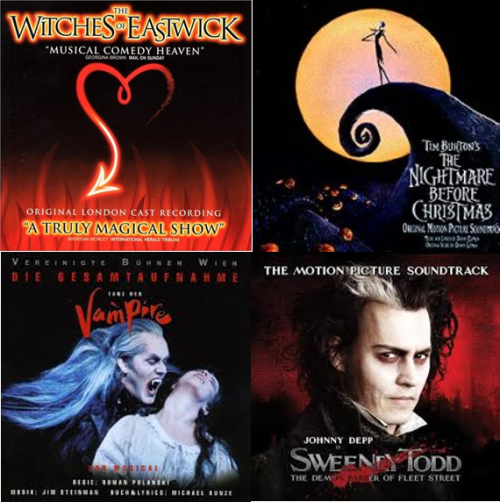





The try of a collection of I would not call “dark” musicals because some of them are quite great fun, let´s call them “Goth-friendly” ^^ Included are film versions also with great music, and with some of them I am not familiar by now but have them on my list.

Youtube is a wonderful resource with lots of helpful information on it! I’ve collated together all the Divination Lessons I could find. If any of these links break, or you find something that should be added to the list, please message me!
This is as much a resource for me as it is for you - I have only watched part of most of these so take them with a grain of salt!
Tarot
Learn the 78 Tarot Cards in Two Hours (Part 1, Part 2)
Tarot Cards - Understanding Reversals
How to Practice Tarot Readings when you’re on your own (Part 1, Part 2)
How to Shuffle Tarot Cards
How to Get Good Results Every Time with Tarot
The Only Way To Learn The Tarot (and a bit about what Pages mean)
How to read a Tarot card easily and comfortably
Putting it all together in a Tarot reading
Know How To Use Your Tarot Cards By Munisha Khatwani
Tarot - An Introduction by Munisha Khatwani
22 Major Arcana Cards In Tarot - Munisha Khatwani
Tarot Cards Use and History
7 Tarot Tips for Learning Tarot Card Meanings
Runes
How to read runes (Part 1, Part 2, Part 3)
How to Cast Runes (Runes for Beginners)
What are Runes?
150. A Technique for Memorising Runes
How to make Runes
Your First Rune Readings: Practicing with Meanings
The Long History of the Rune Stones
All About Runes (Intermediate Magic) (Part 1, Part 2)
Pendulum
How to Use a Pendulum (Basics)
Your Pendulum and Its Secret Uses
An introduction to dowsing with a pendulum
How To Use A Pendulum For Divining
How to use a Pendulum for Spirit Communication
How to use a Pendulum to get answers from your Subconscious
Scrying
How to Scry (Part 1, Part 2)
Magical Techniques: Part 1 - The Art of Scrying.
One Witch’s Way - Crystal Ball (Part 1, Part 2)
Crystal Ball and Mirror Gazing Tutorial
Crystal Spheres and Scrying
Simple Water Scrying
How to Scry
Scrying Mirrors | Witchcraft 101
Tasseomancy
Tea leaf reading with Amber McCarroll
Tea Leaf Reading
Tea Leaf Reading
What Is Tea Leaf Reading? | Psychic Abilities
Tea Leaf Reading with Shaheen
Tea Leaf Reading
Cartomancy
Fortune Telling with Playing Cards
Playing Card Meanings - How to read a deck of cards - Cartomancy
Fortune Telling Cards (Reading & Meanings)
Bibliomancy
173. The Art of Bibliomancy
Bibliomancy
Bibliomancy
Bibliomancy introduction
How to do Bibliomancy, divination with books!
Palmistry
Read your palm ! - only 7 minutes lectured by Japanese Ninja
Secrets Revealed in Your Palm
Secrets Revealed in Your Palm - Part 2
PALMISTRY: THE FATE LINE
wealth indications in detail more points palmistry
palmistry detailed analysis (very refined hand)
Palmistry Saturn Line Fate Line Money Line Wealth Line Analysis
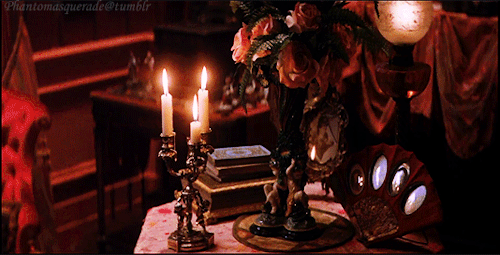
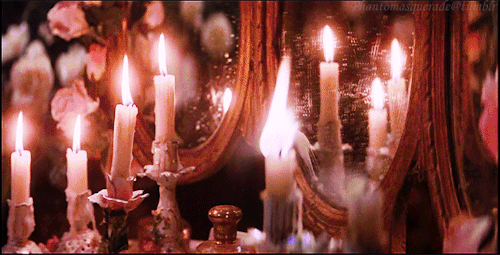
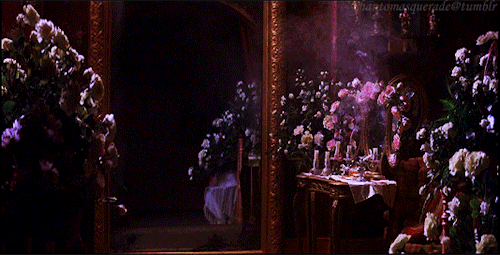
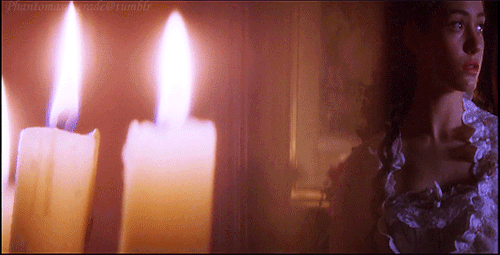
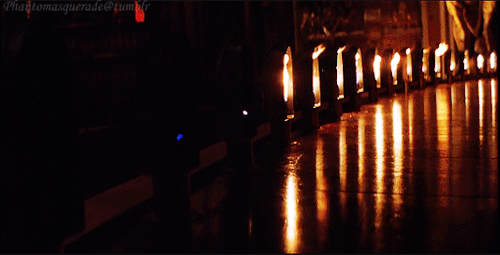
Dido Belle and Jane Austen's Fanny Price

With the critical success of the new film Belle, there’s a lot of interest in the life of its heroine, Dido Belle. Many have even hailed the movie as as Austen-esque, with it being centered around a headstrong, 18th century woman who doesn’t quite fit in with her stuffier surroundings. And yet, there is quite a bit of (circumstantial) evidence that suggests that it was Jane Austen who was inspired by Dido’s story for her novel, Mansfield Park.
About a year ago, I wrote a research paper on the historical and literary events that may have influenced Austen’s Mansfield Park. If you’re interested in the subject, here’s some excerpts from that paper, including some of the sources I used:
“Historically speaking, the characters of Fanny Price and the Lord and Lady Betram seem to have been loosely based on the life of Dido Belle, the illegitimate daughter of a British Admiral and African slave, who was sent to live with her uncle in England…
There is evidence to back up the fact that Austen knew about the life of Dido Belle and the Mansfield family. Lord Mansfield was a Lord Chief Justice and a distinguished figure of society, whose “public image…[was] of a brilliant judge and a man of impeccable integrity… famous for his silver-tongued oratory” (Adams 1). In 1772, he made a controversial decision in the case of a black man, James Somerset, who was being forced to leave England to be sent back the American colonies as a slave. Lord Mansfield ruled in Somerset’s favor, essentially freeing the man from his enslaved state. This case became “widely interpreted to mean that all enslaved people in England must be ‘discharged’… [giving] great momentum to the movement of abolition”(Jones). The circumstances of this case is believed to have partially influenced William Cowper’s poem The Task, a poet whom Austen is known to have read and alluded to in several of her books, including Mansfield Park (Pemberly). Christine Kenyon Jones, in her essay “Ambiguous Cousinship: Mansfield Park and the Mansfield Family,” sees the following lines as evidence of Mansfield’s ruling as being influential in Cowper’s writing: We have no slaves at home—then why abroad? And they themselves, once ferried o’er the wave That parts us, are emancipate and loosed. Slaves cannot breathe in England; if their lungs Receive our air, that moment they are free, They touch our country and their shackles fall. (2.37-42) The imagery of the first line compares “slaves at home” to slaves “abroad,” making the case that it is hypocritical to want one’s own immediate surroundings to have the appearance of moral uprightness, while simultaneously profiting from slavery abroad and away from view. One can apply this to Mansfield’s own household, as well as Sir Thomas’ in Mansfield Park: once Sir Thomas returns from his plantation in Antigua that he desires to treat Fanny as an equal instead of as the kind of servant she is used to being treated as; likewise, it was widely speculated at the time that Mansfield’s ruling was partly influenced by the presence of his niece, Dido, who was, after all, the product of his own nephew’s capture of a slave woman and taking sexual advantage of her. That is, his first-hand experience with slavery and its effects may have given him a fuller perspective of the horrors of enslaving human beings.
In addition to the possibility of Austen being influenced by Cowper’s poem and Lord Mansfield’s reputation, she was also acquainted with Lady Elizabeth Finch-Hatton, who was the cousin and childhood companion of Dido Elizabeth Bell. Citing Austen’s letters as evidence, Jones suggests that her association with Lady Elizabeth inspired the “elegant-but-dumb” character of Lady Bertram of Mansfield Park and even Lady Middleton from Sense and Sensibility. In a letter to her sister Cassandra, Austen imparts her meeting of the Hattons in August of 1805: “Fortune was also very civil to me in placing Mr. E. Hatton by me at dinner. I have discovered that Ly. Elizth for a woman of her age & situation, has astonishingly little to say for herself…” (CE, #45). Jones believes that Austen’s remarks suggest that “she was aware of Lady Elizabeth’s ancestry and origins, and was disappointed not to find her a more interesting person or forthcoming I conversation.” In her later letters, however, this disappointment in Lady Elizabeth’s lack of personality becomes amusement for Jane and Cassandra, just as Lady Bertram’s presence in Mansfield Park provides comic relief. In another letter, Austen briefly mentions her with some mocking: “Lady Eliz. Hatton & Anna-maria called here this morng;-Yes, they called,-but I do not think I can say anything more about them. They came & they sat & they went” (CE, #91). Here, Lady Elizabeth’s presence is mute and unremarkable; yet despite her seeming lack of personality, Austen mentions her several times in her letters in much the same way, suggesting that while colorless and dull, she was worth mentioning for this same reason. In Mansfield Park, nearly every mention of Lady Bertram is irrelevant and unrelated to the plot—she is referenced as a side note or afterthought.
Austen often mentions her in terms of her non-presence, as in her unenthusiastic, almost lifeless responses to the events that occur around her. Often, “Lady Bertram [makes] no objection” (89), “[makes] no opposition”(41) or is “perfectly quiescent and contented, and with no objections to make” (264). Austen seems to be consciously making correlations between Lady Elizabeth and Lady Bertram. The luxurious lifestyle of both women contrasts greatly next to their relationship with their less fortunate relatives, Dido and Fanny, and the similarities of their stories do not seem coincidental. It is almost a certainty that Austen knew of Dido Belle’s story, and makes use of it in her creation of the character of Fanny Price.
Dido Belle and Fanny Price have a lot in common. Both begin life with disadvantages. While Fanny is born into a poor, overcrowded household, Dido was born to a slave. Both girls were sent to live with wealthy relatives who could better provide for them. Because of her mixed-race status, Dido’s role at Kenwood was rather unclear, much like Fanny’s presence at Mansfield. When Fanny arrives to Mansfield, she is made to believe herself unequal to her cousins, and is treated like a servant by Mrs. Norris and Lady Bertram. An invitation to live with rich relatives should have been a privilege to appreciate, but as Christine Kenyon Jones points out, Fanny is, at first, made to feel reliant on their benevolence. Jones explains that though Fanny receives “the advantages of comfort, wealth, and education…Fanny was a poor relation whose status at Mansfield was unregulated and totally dependent upon the good-will and affection of those around her.” Dido Belle, while given better treatment than most slaves or even servants, was still considered unequal to her cousin, Lady Elizabeth, who also lived at Kenwood. Thomas Hutchinson, an American who visited Kenwood, made detailed observations of Dido Belle in a 1779 diary entry. At one point, he speculates that Dido is some kind of glorified servant: “And she was called upon by my Lord every minute for this thing and that, and shewed the greatest attention everything he said” (Adams). Jones concludes her argument for the connection between Dido and Fanny: “While neither the novel nor the painting is ‘about’ slavery, both evidently allude to its effects and probe the uncomfortable realities of inequality, power, and obligation concealed beneath the smooth surface of family representation.” Austen’s allusion to Dido’s life adds depth to Mansfield Park beyond its rags-to-riches storyline.”
Works Cited:
Adams, Gene. “Dido Elizabeth Belle: A Girl at Kenwood.” Camden History Review 12 (1988). Web.
Jones, Christine Kenyon. “Ambiguous Cousinship: Mansfield Park and the Mansfield Family.” Persuasions Online 31.1 (2010). Web.
Slavery and Justice at Kenwood House. n.d. Web.
(To cite my essay, please refer to MLA handbook and use “Violet Pamplempousse” as the author)





horror movies / paintings
ginger snaps / ilya repin
dean cornwell / hannibal
the exorcist / rené magritte
francis bacon / alien
the blackcoat’s daughter / dean cornwell
georges roux / crimson peak
ready or not / gustave moreau
rené magritte / evil dead 2
saw / jenő gyárfás
john singer sargent / the loved ones
-
 ciaoclub liked this · 1 month ago
ciaoclub liked this · 1 month ago -
 hibouxbelles liked this · 1 month ago
hibouxbelles liked this · 1 month ago -
 lupitaespinoza liked this · 1 month ago
lupitaespinoza liked this · 1 month ago -
 kokoro-heart reblogged this · 1 month ago
kokoro-heart reblogged this · 1 month ago -
 beyond-the-second-star liked this · 2 months ago
beyond-the-second-star liked this · 2 months ago -
 aniland liked this · 2 months ago
aniland liked this · 2 months ago -
 arthoelegacy reblogged this · 2 months ago
arthoelegacy reblogged this · 2 months ago -
 thecrownofflames liked this · 2 months ago
thecrownofflames liked this · 2 months ago -
 haleanne reblogged this · 2 months ago
haleanne reblogged this · 2 months ago -
 poceti liked this · 2 months ago
poceti liked this · 2 months ago -
 snowy-pinecone liked this · 2 months ago
snowy-pinecone liked this · 2 months ago -
 scarletnovabegonias liked this · 3 months ago
scarletnovabegonias liked this · 3 months ago -
 ivebeentothewonderland liked this · 4 months ago
ivebeentothewonderland liked this · 4 months ago -
 paper-bird liked this · 4 months ago
paper-bird liked this · 4 months ago -
 botticellis-primavera liked this · 4 months ago
botticellis-primavera liked this · 4 months ago -
 deedeemarley liked this · 5 months ago
deedeemarley liked this · 5 months ago -
 embutido333 liked this · 5 months ago
embutido333 liked this · 5 months ago -
 the-stars-descend liked this · 5 months ago
the-stars-descend liked this · 5 months ago -
 belledamn liked this · 5 months ago
belledamn liked this · 5 months ago -
 persephoneism reblogged this · 5 months ago
persephoneism reblogged this · 5 months ago -
 persephoneism liked this · 5 months ago
persephoneism liked this · 5 months ago -
 tananaphone liked this · 5 months ago
tananaphone liked this · 5 months ago -
 plague-memoria liked this · 5 months ago
plague-memoria liked this · 5 months ago -
 misseyres reblogged this · 5 months ago
misseyres reblogged this · 5 months ago -
 flowermancy reblogged this · 5 months ago
flowermancy reblogged this · 5 months ago -
 mightyaubs liked this · 5 months ago
mightyaubs liked this · 5 months ago -
 oliviermiraarmstrongs reblogged this · 5 months ago
oliviermiraarmstrongs reblogged this · 5 months ago -
 aslutforequalrights liked this · 5 months ago
aslutforequalrights liked this · 5 months ago -
 pomegranteandpith reblogged this · 5 months ago
pomegranteandpith reblogged this · 5 months ago -
 sardineskissing liked this · 5 months ago
sardineskissing liked this · 5 months ago -
 eleanornoel liked this · 5 months ago
eleanornoel liked this · 5 months ago -
 thedreadpiratematt reblogged this · 5 months ago
thedreadpiratematt reblogged this · 5 months ago -
 thedreadpiratematt liked this · 5 months ago
thedreadpiratematt liked this · 5 months ago -
 goofygoobston liked this · 5 months ago
goofygoobston liked this · 5 months ago -
 jauntygold reblogged this · 5 months ago
jauntygold reblogged this · 5 months ago -
 joannaofcastile reblogged this · 5 months ago
joannaofcastile reblogged this · 5 months ago -
 duchessavondale reblogged this · 5 months ago
duchessavondale reblogged this · 5 months ago -
 etudante-3605 liked this · 5 months ago
etudante-3605 liked this · 5 months ago -
 bellumatrox liked this · 5 months ago
bellumatrox liked this · 5 months ago -
 lazymayzie reblogged this · 6 months ago
lazymayzie reblogged this · 6 months ago -
 tercerpiso liked this · 6 months ago
tercerpiso liked this · 6 months ago -
 meple-leef liked this · 6 months ago
meple-leef liked this · 6 months ago -
 crookedtines liked this · 6 months ago
crookedtines liked this · 6 months ago -
 divers-wife reblogged this · 6 months ago
divers-wife reblogged this · 6 months ago -
 noisyhope reblogged this · 6 months ago
noisyhope reblogged this · 6 months ago -
 noisyhope liked this · 6 months ago
noisyhope liked this · 6 months ago -
 wickedest-of-roses liked this · 6 months ago
wickedest-of-roses liked this · 6 months ago -
 valorfaerie liked this · 6 months ago
valorfaerie liked this · 6 months ago -
 mccrumpet89 liked this · 6 months ago
mccrumpet89 liked this · 6 months ago